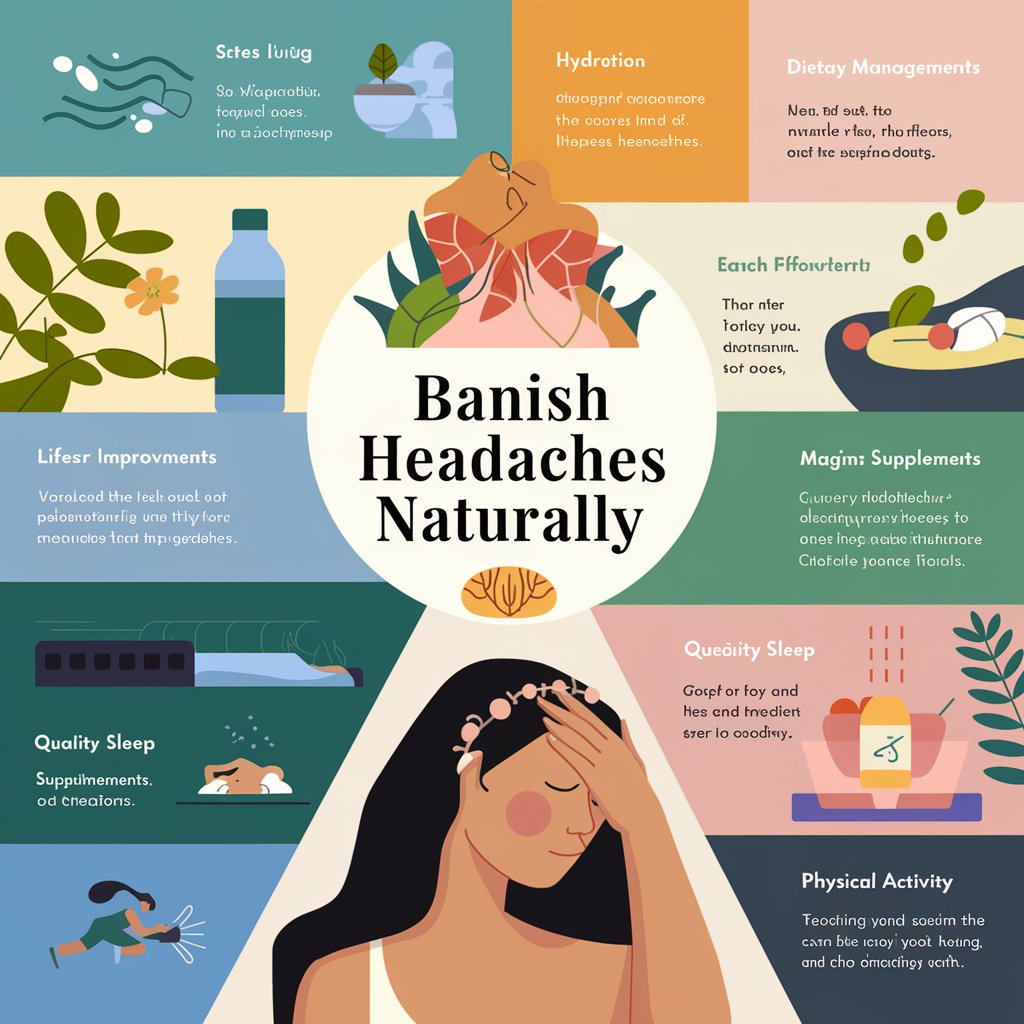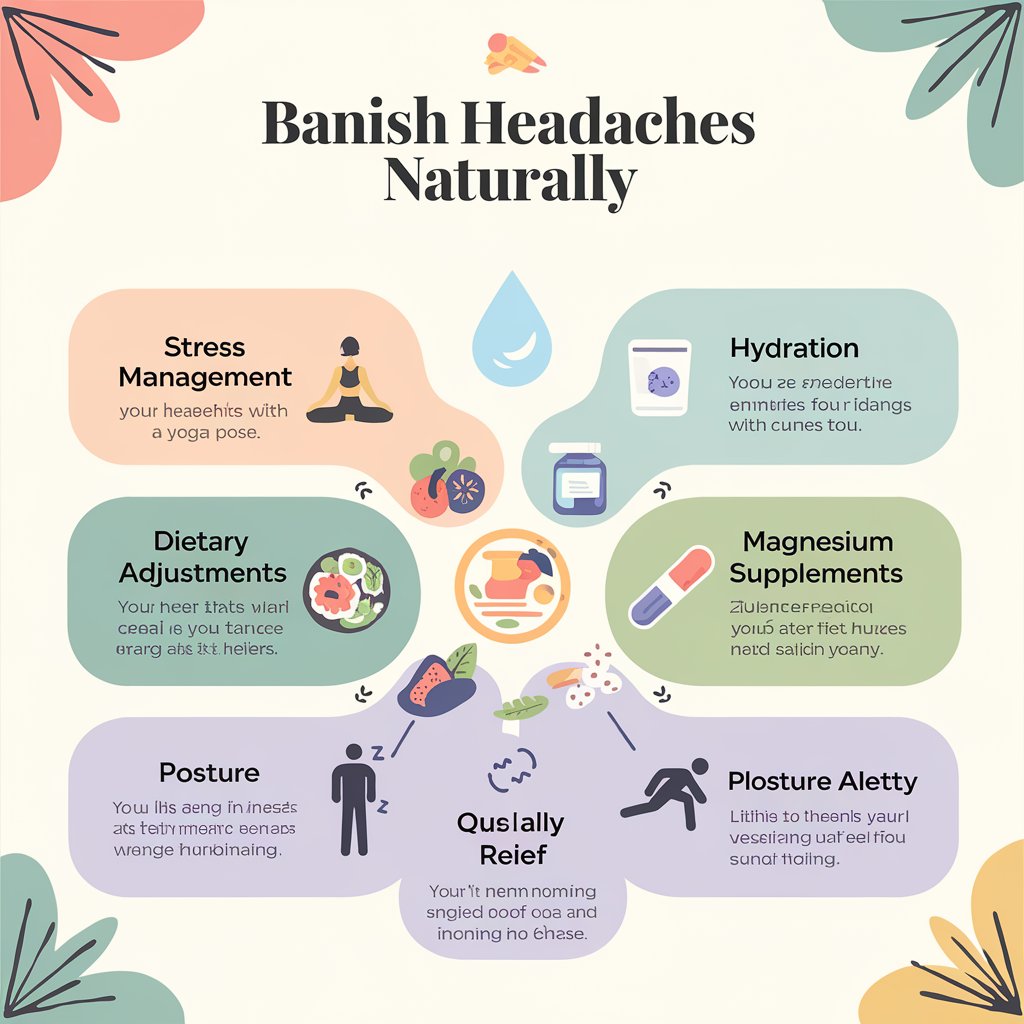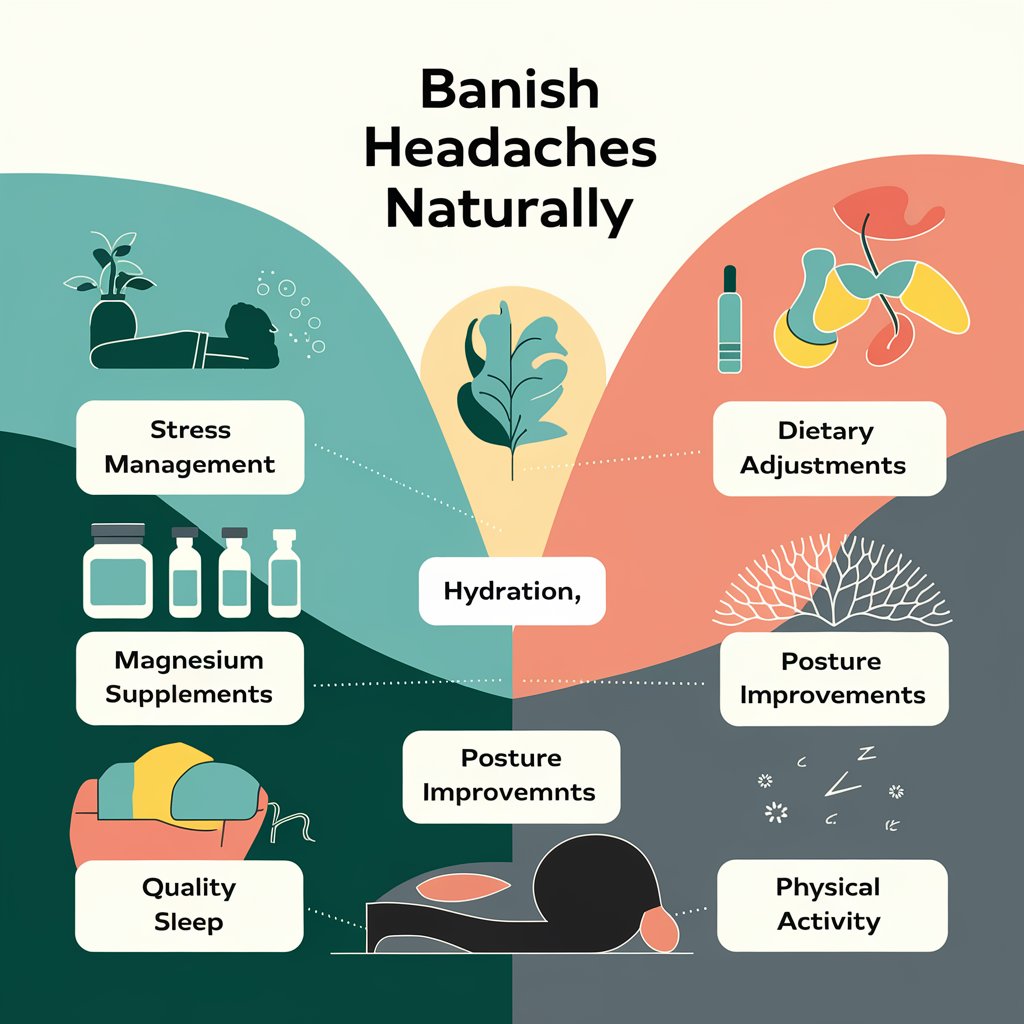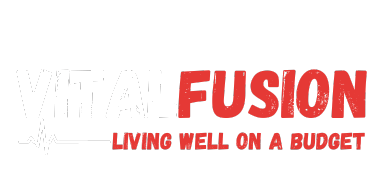Table of Contents
Banish Headaches Naturally: Effective Remedies and Lifestyle Changes
Identifying the Triggers
Headaches can be a frustrating and debilitating problem, but the good news is that there are many natural remedies and lifestyle changes that can help alleviate the discomfort. The first step in banishing headaches naturally is to identify the underlying triggers. Common culprits include stress, poor posture, dehydration, lack of sleep, and certain foods or beverages. By pinpointing the specific triggers, you can then take targeted action to address them.
Stress-Busting Techniques
Stress is a leading contributor to headaches, so it’s essential to find healthy ways to manage it. Practices like meditation, deep breathing, and yoga can be highly effective in reducing stress and tension. Taking regular breaks throughout the day to stretch, go for a walk, or engage in a relaxing activity can also help. If you find yourself clenching your jaw or grinding your teeth, try using a mouthguard or engaging in jaw-relaxing exercises.
Dietary Adjustments
The foods and beverages you consume can have a significant impact on your susceptibility to headaches. Certain triggers, such as processed foods, caffeine, and alcohol, can contribute to or exacerbate headache symptoms. Conversely, incorporating more hydrating, nutrient-dense foods like fruits, vegetables, and whole grains can help prevent and alleviate headaches. Consider keeping a food journal to identify any specific dietary culprits and make adjustments accordingly.
Hydration and Electrolyte Balance
Dehydration is a common trigger for headaches, so it’s essential to stay hydrated throughout the day. Aim to drink plenty of water, and consider incorporating electrolyte-rich beverages like coconut water or herbal teas to maintain a healthy electrolyte balance.
Magnesium and Other Supplements
Certain supplements, such as magnesium, CoQ10, and feverfew, have been shown to be effective in reducing the frequency and intensity of headaches. Magnesium, in particular, plays a crucial role in muscle function and can help relax tense muscles that contribute to headaches. Consult with a healthcare professional before starting any new supplement regimen.
Lifestyle Adjustments
In addition to dietary and stress-management strategies, there are several lifestyle changes that can help prevent and alleviate headaches.
Improved Posture and Movement
Poor posture, especially while sitting or working at a computer, can lead to muscle tension and headaches. Make a conscious effort to maintain good posture, take regular breaks, and incorporate gentle neck and shoulder stretches throughout the day.
Explore: 5 Tips for Increasing Flexibility and Mobility Without Expensive Classes!
Quality Sleep
Adequate, high-quality sleep is essential for overall health and can significantly impact the frequency and severity of headaches. Aim for 7-9 hours of sleep each night and establish a consistent sleep routine to support healthy sleep patterns.
Explore : 5 Simple Changes to Improve Your Sleep Quality for Free and Wake Up Feeling Amazing
Exercise and Physical Activity
Regular physical activity can help reduce stress, improve circulation, and release endorphins, all of which can contribute to headache relief. Incorporate a variety of exercises, such as walking, yoga, or low-impact cardio, into your routine.
By addressing the underlying triggers and implementing these natural remedies and lifestyle changes, you can take control of your headaches and enjoy a greater sense of overall well-being.

Identifying and Managing Common Headache Triggers
Common Headache Triggers
Headaches can be a frustrating and debilitating condition, but understanding the common triggers can help you take proactive steps to manage and prevent them. Let’s explore some of the most common headache triggers and discuss effective strategies to address them.
Stress and Anxiety
One of the primary culprits behind headaches is stress and anxiety. When we’re under high levels of stress, our body’s natural response can trigger a cascade of physiological changes that lead to tension headaches or migraines. Practicing stress management techniques, such as meditation, deep breathing, or engaging in relaxing activities, can be highly effective in reducing the impact of stress-related headaches.
Explore: 13 Strategies For Coping With Anxiety On A Budget
Caffeine Intake
Caffeine is a double-edged sword when it comes to headaches. While moderate consumption can provide relief for some individuals, sudden withdrawal or overconsumption of caffeine can actually trigger or exacerbate headaches. It’s essential to monitor your caffeine intake and maintain a consistent, healthy level to avoid the fluctuations that can contribute to headaches.
Hormonal Changes
Hormonal fluctuations, particularly in women, can be a significant factor in the development of headaches. Menstrual cycles, birth control medication, and hormonal imbalances can all lead to hormonal-related headaches. Consulting with a healthcare professional to address any hormonal imbalances or adjusting medication can help manage this trigger.
Dehydration
Staying hydrated is crucial for maintaining overall health, and it’s also essential for preventing headaches. Dehydration can cause the blood vessels to constrict, leading to painful tension headaches. Ensuring you drink sufficient water throughout the day, especially in hot or dry environments, can help keep dehydration-related headaches at bay.
Certain Foods and Beverages
Some specific foods and beverages can act as headache triggers for certain individuals. Common culprits include aged cheeses, processed meats, alcohol, and foods containing monosodium glutamate (MSG). Keeping a food diary and identifying any patterns can help you pinpoint and avoid the specific items that trigger your headaches.
Lack of Sleep
Inadequate sleep or disrupted sleep patterns can be a significant contributor to headaches. When we don’t get enough quality sleep, our body’s natural rhythms can become imbalanced, leading to tension, migraines, or cluster headaches. Prioritizing a consistent sleep schedule and practicing good sleep hygiene can help mitigate this trigger.
Sensory Stimuli
Bright lights, loud noises, strong smells, and other sensory stimuli can also trigger headaches in some individuals. Identifying and avoiding exposure to these triggers, or using protective measures like sunglasses or earplugs, can be helpful in preventing and managing headaches.
By understanding and addressing these common headache triggers, you can take proactive steps to manage and reduce the frequency and severity of your headaches. Remember, everyone is different, so it’s essential to pay attention to your own patterns and work with your healthcare provider to find the most effective strategies for your unique situation.

The Science Behind Headache Relief: Understanding Causes and Mechanisms
Understanding the Science Behind Headache Relief
Headaches are a common and often debilitating condition that can significantly impact an individual’s quality of life. However, understanding the science behind headache relief can provide valuable insights into effective management strategies. In this article, we will explore the causes and mechanisms underlying headaches, as well as some natural approaches to finding relief.
Causes of Headaches
Headaches can stem from a variety of factors, both physiological and environmental. One of the primary causes of headaches is the activation of the trigeminal nerve, which is responsible for transmitting pain signals from the head and face to the brain. This activation can be triggered by a range of factors, including:
Stress and Tension
Chronic stress and muscle tension in the neck, shoulders, and head can lead to the contraction of these muscles, which can put pressure on the trigeminal nerve and cause tension-type headaches.
Hormonal Changes
Fluctuations in hormones, particularly during menstrual cycles, pregnancy, or menopause, can also contribute to the development of headaches.
Dietary Triggers
Certain foods and beverages, such as processed meats, aged cheeses, and caffeine, can trigger the release of compounds that can lead to the constriction of blood vessels and the activation of the trigeminal nerve.
Environmental Factors
Changes in weather, exposure to bright lights or loud noises, and poor posture can all play a role in the onset of headaches.
Mechanisms of Headache Relief
Understanding the mechanisms behind headache relief is crucial for developing effective management strategies. Some of the key mechanisms involved in headache relief include:
Vasodilation and Vasoconstriction
Many headache treatments work by either dilating or constricting blood vessels, which can help regulate the flow of blood and reduce the pressure on the trigeminal nerve.
Modulation of Pain Signals
Some natural remedies, such as certain herbs and supplements, can help modulate the transmission of pain signals through the trigeminal nerve, effectively reducing the perceived intensity of the headache.
Stress and Muscle Tension Relief
Techniques that target muscle tension and stress, such as massage, meditation, and relaxation exercises, can help alleviate the underlying causes of tension-type headaches.
Natural Approaches to Headache Relief
While pharmaceutical options are available for managing headaches, many individuals are turning to natural remedies for a more holistic approach. Some effective natural strategies for headache relief include:
Herbal Remedies
Herbs like feverfew, ginger, and butterbur have been shown to possess anti-inflammatory and pain-relieving properties that can help alleviate headache symptoms.
Lifestyle Modifications
Stress-reducing practices, such as yoga, meditation, and deep breathing exercises, can help manage the physiological factors that contribute to headaches.
Dietary Changes
Adjusting your diet to avoid known triggers, such as processed foods, caffeine, and alcohol, can help reduce the frequency and intensity of headaches.
Acupuncture and Massage
These complementary therapies can help relax the muscles, improve blood flow, and modulate pain signals, providing effective relief for certain types of headaches.
By understanding the science behind headache relief and exploring natural approaches, individuals can take a proactive role in managing their headaches and improving their overall well-being. Remember, it’s always best to consult with a healthcare professional to develop a personalized treatment plan that meets your specific needs.

Incorporating Holistic Approaches for Long-term Headache Management
Understanding the Holistic Approach to Headache Management
Headaches can be a debilitating and chronic condition that affects millions of people worldwide. While conventional medical treatments, such as medication and pain relievers, can provide temporary relief, they often fail to address the underlying causes of the problem. This is where a holistic approach to headache management comes into play, offering a comprehensive and long-term solution to this common health issue.
Identifying the Root Causes of Headaches
A holistic approach recognizes that headaches can be influenced by a variety of factors, including stress, poor posture, dehydration, and even food sensitivities. By addressing these root causes, a holistic practitioner can develop a tailored treatment plan that addresses the individual’s unique needs and concerns.
Implementing Lifestyle Changes
One of the key components of a holistic approach to headache management is the implementation of lifestyle changes. This may include:
Stress Management
Techniques such as meditation, yoga, and deep breathing can help reduce stress and tension, which are common triggers for headaches.
Dietary Modifications
Identifying and eliminating food sensitivities or dietary triggers can help alleviate headache symptoms.
Improved Posture and Ergonomics
Addressing poor posture and ergonomic issues, such as prolonged computer use or improper desk setup, can help reduce muscle tension and strain, which can contribute to headaches.
Alternative Therapies
In addition to lifestyle changes, a holistic approach may also incorporate various alternative therapies, such as:
Acupuncture
This ancient Chinese practice has been shown to be effective in reducing the frequency and intensity of headaches.
Massage Therapy
Massage can help relax muscles, improve blood flow, and reduce tension, all of which can contribute to headache relief.
Herbal Remedies
Certain herbs, such as feverfew and butterbur, have been used traditionally to help alleviate headache symptoms.
Empowering Patients through Education and Self-Care
A crucial aspect of a holistic approach to headache management is empowering patients with the knowledge and tools to take an active role in their own well-being. This may include providing comprehensive education on the underlying causes of headaches, as well as teaching self-care techniques, such as:
Identifying and Avoiding Triggers
Helping patients become more aware of their personal headache triggers and learning how to avoid or manage them.
Practicing Relaxation Techniques
Educating patients on various relaxation techniques, such as deep breathing, meditation, and visualization, to help manage stress and tension.
Maintaining a Healthy Lifestyle
Encouraging patients to adopt healthy habits, such as proper hydration, regular exercise, and adequate sleep, to support overall well-being and reduce the risk of headaches.
By incorporating a holistic approach to headache management, individuals can experience long-term relief and improved quality of life. This comprehensive approach addresses the mind, body, and lifestyle factors that contribute to headaches, empowering patients to take control of their health and find lasting solutions to this common and often debilitating condition.

Empowering Yourself: Self-care Strategies to Overcome Persistent Headaches
Embrace Natural Remedies: Conquering Headaches without Medication
Persistent headaches can be a frustrating and debilitating experience, disrupting our daily lives and overall well-being. While over-the-counter medications may provide temporary relief, they often come with unwanted side effects. Fortunately, there are a variety of natural remedies and self-care strategies that can empower you to overcome persistent headaches without relying on pharmaceuticals.
Harness the Power of Essential Oils
Essential oils have long been recognized for their therapeutic properties, and they can be highly effective in managing headache symptoms. Lavender oil, for instance, is known for its calming and soothing effects, which can help alleviate tension and stress-related headaches. Simply apply a few drops to your temples, forehead, or the back of your neck, and allow the aroma to work its magic. Peppermint oil, on the other hand, can provide a cooling sensation that may help constrict blood vessels and reduce inflammation, making it a great choice for migraines.
Embrace the Benefits of Hydration
Dehydration is a common trigger for headaches, as it can cause the brain to contract, leading to painful pressure and tension. Ensure that you’re drinking enough water throughout the day, and aim for at least eight glasses to keep your body properly hydrated. If you find plain water to be boring, try adding slices of fresh fruit, herbs, or even a squeeze of lemon or lime to make it more appealing.
Explore the Power of Acupressure
Acupressure, a traditional Chinese medicine technique, involves applying gentle pressure to specific points on the body to promote healing and balance. One particularly effective acupressure point for headaches is located between the thumb and index finger, just below the webbing of the hand. Gently massaging this area can help alleviate tension and may provide relief from headache symptoms.
Incorporate Relaxation Techniques
Stress and anxiety can be significant contributors to persistent headaches. relaxation techniques into your daily routine can help alleviate these underlying factors. Consider trying practices such as deep breathing exercises, meditation, or gentle yoga to calm your mind and body. These activities can help reduce muscle tension, improve blood flow, and promote a sense of overall well-being.
Optimize Your Sleep Hygiene
Adequate, high-quality sleep is essential for maintaining overall health, including the prevention of headaches. Establish a consistent sleep schedule, avoid screens and electronic devices before bedtime, and create a conducive sleep environment by keeping your room cool, dark, and quiet. If you find it challenging to fall or stay asleep, consider practicing relaxation techniques or consulting a healthcare professional for personalized guidance.
Embrace Dietary Changes
Certain foods and dietary habits can contribute to the development of headaches. Identify and avoid potential triggers, such as processed foods, caffeine, or foods high in MSG or nitrates. Instead, focus on incorporating a balanced diet rich in whole, nutrient-dense foods, including fruits, vegetables, and healthy fats. Staying hydrated and limiting your intake of processed and sugary foods can also help manage headache symptoms.
Engage in Regular Exercise
Physical activity can be a powerful tool in managing persistent headaches. Engaging in regular exercise, such as walking, swimming, or yoga, can help reduce stress, improve blood flow, and release endorphins – the body’s natural pain-relieving chemicals. Even gentle stretching or a brief stroll can be beneficial in alleviating headache discomfort.
Empowering yourself to overcome persistent headaches through natural remedies and self-care strategies can be a transformative experience. By embracing these holistic approaches, you can reclaim your well-being, reduce your reliance on pharmaceuticals, and improve your overall quality of life. Remember, your health and happiness are worth the investment, and with a little patience and commitment, you can conquer those debilitating headaches and regain control of your life.
Conclusion
Persistent headaches can be a frustrating and debilitating experience, but with the right approach, you can find lasting relief. By understanding the underlying causes and triggers, incorporating a holistic self-care regimen, and adopting effective natural remedies, you can take control of your health and banish headaches for good.
The key is to address the root causes of your headaches, whether they’re related to stress, poor posture, dietary factors, or other lifestyle habits. By identifying and managing these triggers, you can prevent the onset of headaches and minimize their frequency and severity.
A range of natural remedies, from essential oils and herbal supplements to relaxation techniques and dietary changes, can provide powerful relief without the adverse effects of medication. Meanwhile, embracing holistic approaches, such as acupuncture, chiropractic care, and meditation, can help alleviate the underlying issues that contribute to persistent headaches.
Ultimately, the path to headache-free living requires a multifaceted approach that prioritizes self-care and empowerment. By taking an active role in your health, you can unlock the power of your body’s natural healing potential and enjoy a better quality of life, free from the burden of persistent headaches.






